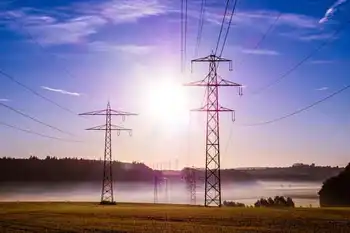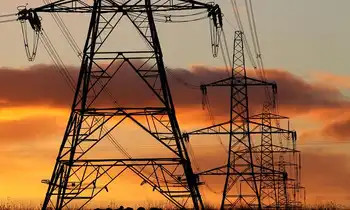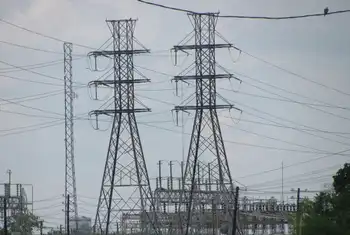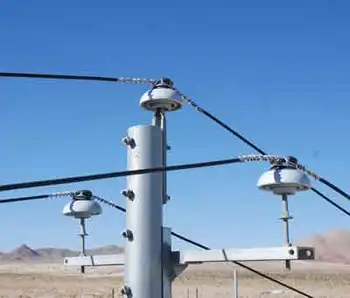Fuel pools ready for emergencies: NRC chair
By New York Times
High Voltage Maintenance Training Online
Our customized live online or in‑person group training can be delivered to your staff at your location.

- Live Online
- 12 hours Instructor-led
- Group Training Available
Nuclear utilities were ordered to “identify and pre-stage equipment” that would be useful in such an emergency, according to commission officials. They have been reluctant to disclose details, because some preparations against terrorist attack are classified, but indicate that the preparation includes locating emergency generators, diesel-driven pumps, hoses and diesel fuel, as well as setting up procedures.
The chairman, Gregory Jaczko, said on the C-Span program “Newsmakers” that these preparations give an “extra sense of certainty” about the ability to withstand events beyond what the plant was designed for.
Energy Secretary Steven Chu, appearing on Fox News, indicated he remained confident in the safety of American plants. But he said the Nuclear Regulatory Commission, an independent agency, would revisit the issues after the problems in Japan.
He said Americans were “in no danger” and “it’s unlikely they will be exposed to danger.” He said the 23 American reactors that use the same Mark 1 design as was used in the Fukushima Daiichi Nuclear Power Station “are constantly being upgraded” to improve their safety.
Nevertheless, Dr. Chu said, officials will have to study whether a reactor like Indian Point, in Buchanan, N.Y., “should remain” and whether its evacuation plans are adequate given that millions of people live near the plant, which is 34 miles from Manhattan.
“It’s an NRC decision,” he said, referring to the Nuclear Regulatory Commission. “But the NRC will be looking at that, I’m sure, based on events. But again this is not to say that we believe that reactor is unsafe. We believe that reactor is safe.”
Congress gave the job of regulating nuclear reactor safety to the Nuclear Regulatory Commission when it broke up the Atomic Energy Commission in the 1970s. The Energy Department got the job of promoting nuclear power. It is part of the American response to the Fukushima accident because it has extensive scientific and engineering capabilities as well as equipment used for monitoring, and because President Obama had designated Dr. Chu, who won a Nobel Prize in physics, as the governmentÂ’s point person on the accident.
Mr. Jaczko, the Nuclear Regulatory Commission chairman, reiterated that the commission would learn all appropriate lessons and act as needed, once the facts became available.
The five-member commission has received a briefing from its staff about what is known and what is uncertain about events in Japan. Mr. Jaczko said the agency ought to wait until more information is in hand before taking action. “It’s important for us to do this in a methodical way,” he said.
He said, however, that a decision made by the commission a few days before the earthquake to approve a 20-year license extension for the Vermont Yankee nuclear plant, which is a near twin of the Fukushima Unit 1 design, was not affected by the events in Japan, even though the commission staff is still finishing the paperwork before issuing the license.
If information from Japan makes it advisable to order changes at Vermont Yankee or other plants, including those that are not approaching the end of their operating licenses, action will be ordered promptly, he said.
He also said he did not anticipate any delay in the commissionÂ’s approval of new reactor designs or a permit for two new reactors in Georgia later this year. Mr. Jaczko said information from Japan should be in hand before the decisions on new plants and new designs are due.
The Nuclear Regulatory Commission has sent 11 experts to Tokyo. Mr. Jaczko said there were no immediate plans to send them to Fukushima Prefecture. They are assisting Japanese regulators and the utility that operates the Fukushima plant, the Tokyo Electric Power Company, from Tokyo, he said.
Mr. Jaczko briefed Mr. Obama about the commission’s assessment of conditions in Japan. Based on those assessments, the United States recommended that Americans stay 50 miles from the stricken reactor complex. Japanese officials have ordered an evacuation out to 20 kilometers — about 12 miles — and told people out to 30 kilometers, 18 miles, to take shelter.
Mr. Jaczko told Congress that one of the spent fuel pools was dry or nearly dry, a very important development. A dry pool would give anyone within line of sight a huge radiation dose, and the fuel might melt and radiation-emitting materials might spread. Japanese officials, however, have cast doubt on the idea that the pool was ever dry.
Mr. Jaczko said that he based his statement on the “best available information” and still believed it to be true, although he added that one part of the post-accident investigation should be to examine information flow. Initial information in an accident can turn out to be wrong, he said. In this case, loss of electric power shut down a lot of monitoring equipment at Fukushima, he said. And general accident conditions do not always lend themselves to good information flow.
“There’s a reason they call it a catastrophe,” he said.











